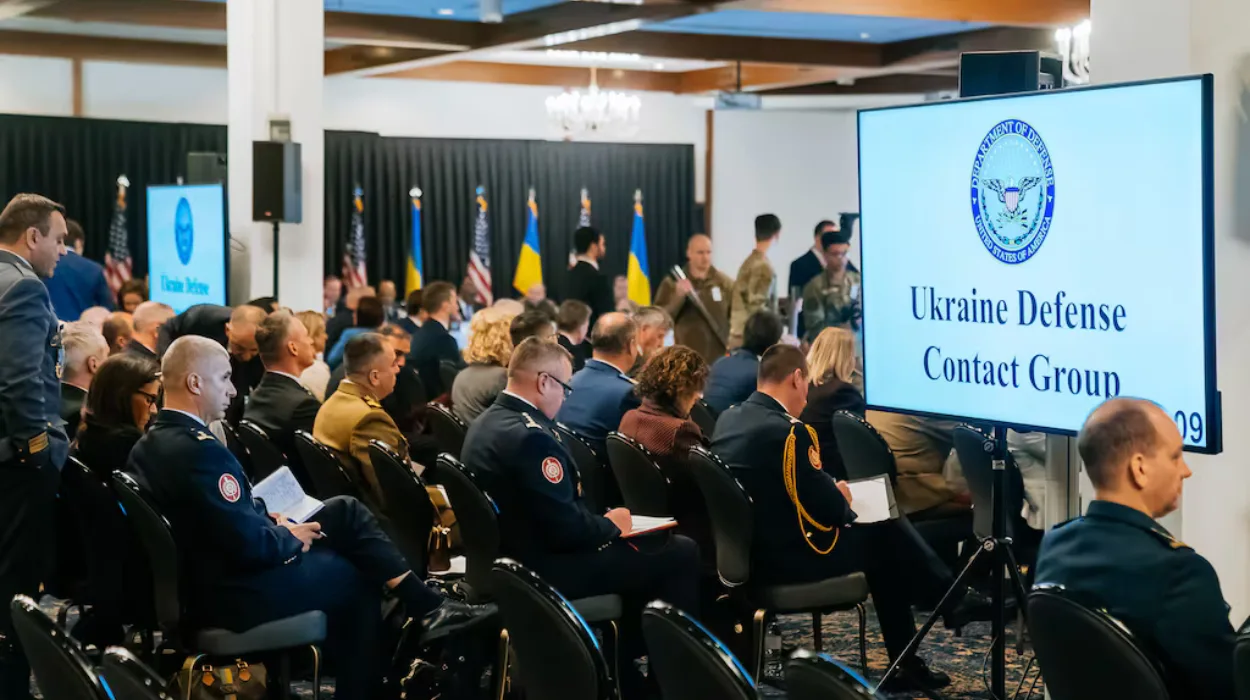Ukraine (Transatlantic Today) – Defense leaders from Europe’s largest military spenders have expressed their commitment to ensuring that the Ukraine Defense Contact Group (UDCG) remains active, even if Donald Trump assumes the U.S. presidency again. Many analysts believe the future U.S. administration may not be as supportive of Ukraine as the Biden administration has been.
The UDCG, also known as the Ramstein Group, has played a crucial role in coordinating military aid and financial contributions to Ukraine as it defends against Russia’s invasion. The group, led by U.S. Defense Secretary Lloyd Austin, has held regular meetings in Germany and via teleconference, rallying support from over 50 nations.
European Leaders Push for Continued Cooperation
German Defense Secretary Boris Pistorius emphasized that the five-nation group—comprising Germany, France, the U.K., Poland, and Italy—remains determined to continue supporting the UDCG format. They are advocating for its continued existence, especially in light of potential changes in U.S. leadership. Ukrainian Defense Minister Rustem Umerov, who participated remotely, also echoed this request.
The ministers are focusing on bolstering Ukraine’s defense industry to reduce weapon fielding times, with a specific emphasis on artificial intelligence-enabled drones and artillery rounds. They also reaffirmed their commitment to maintaining military support for Ukraine while simultaneously increasing their own defense spending.
France’s Continued Support for Ukraine
France plans to deliver Mistral air defense missiles and other systems, including a joint effort with Italy, to support Ukraine. French Defense Minister Sebastien Lecornu noted that funding for this aid would come from interest on frozen Russian assets, a solution that addresses both strategic needs and European taxpayer concerns.
In addition, France has been training an entire Ukrainian brigade in the east of the country, equipping it with armored vehicles and artillery. Lecornu also emphasized the importance of this training, which complements ongoing efforts in Poland. Ukrainian Minister Umerov has requested continued support in training Ukrainian troops.
European Long-Range Strike Approach (ELSA) Initiative
Lecornu mentioned significant progress on the European Long-Range Strike Approach (ELSA), a proposal to develop a European land-based cruise missile. Signed by France, Germany, Italy, and Poland in July and later joined by the U.K. and Sweden, the ELSA project aims to enhance Europe’s security capabilities, particularly against threats from Russia and the Middle East.
For the interim, the U.S. and Germany have agreed to station medium- and long-range missiles in Germany as a deterrent against Russia. However, European officials are uncertain whether the incoming Trump administration will honor this commitment.
Uncertainty Amid Leadership Changes
With the future of U.S. involvement in the group under potential new leadership, Pistorius acknowledged that there is no clear fallback plan. He stated, “If that were to happen, we’d have to think anew about alternative interim solutions.” Despite these uncertainties, European defense leaders are committed to ensuring continued support for Ukraine’s defense needs.


























